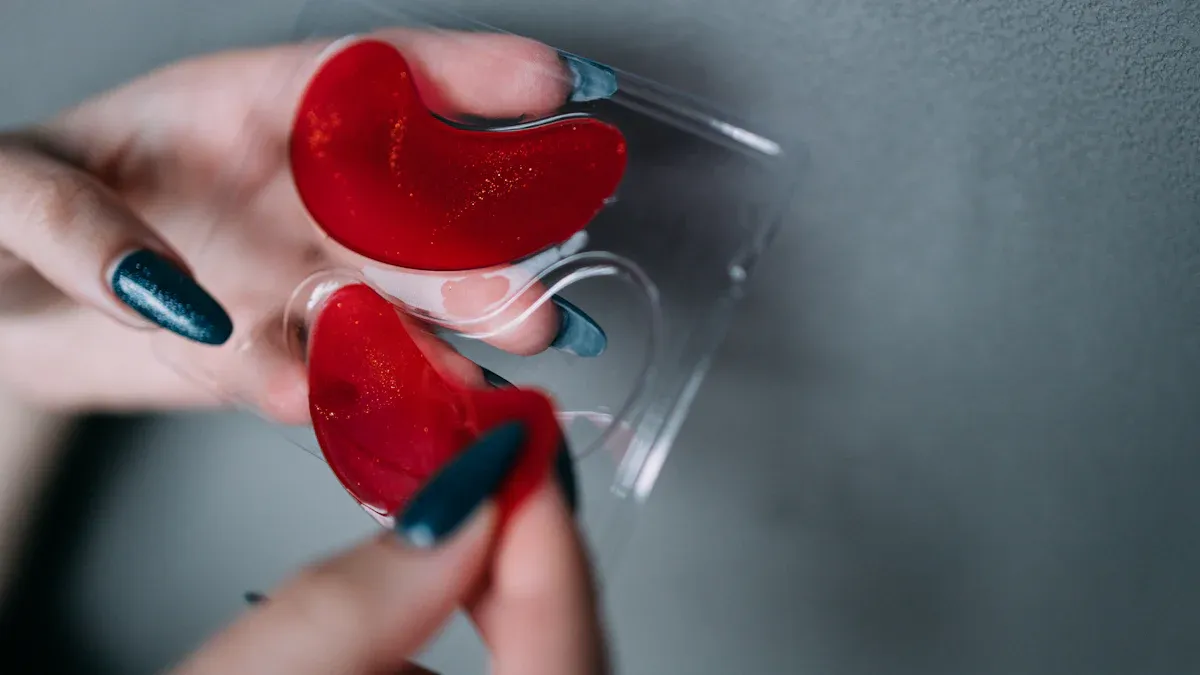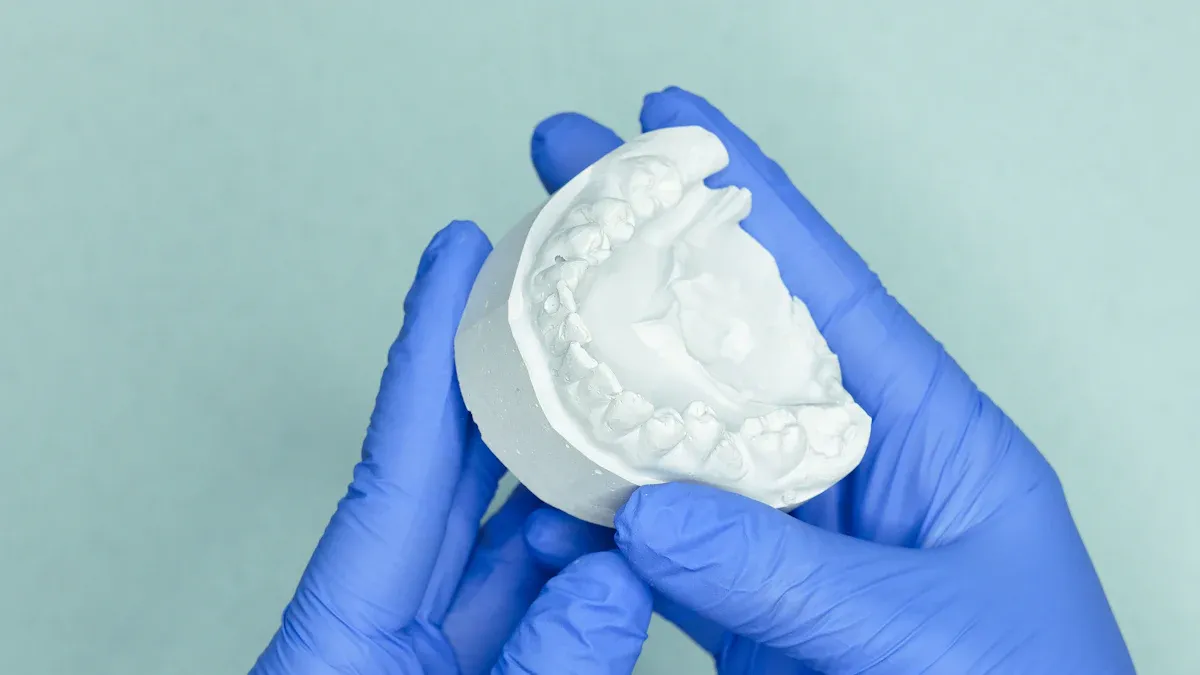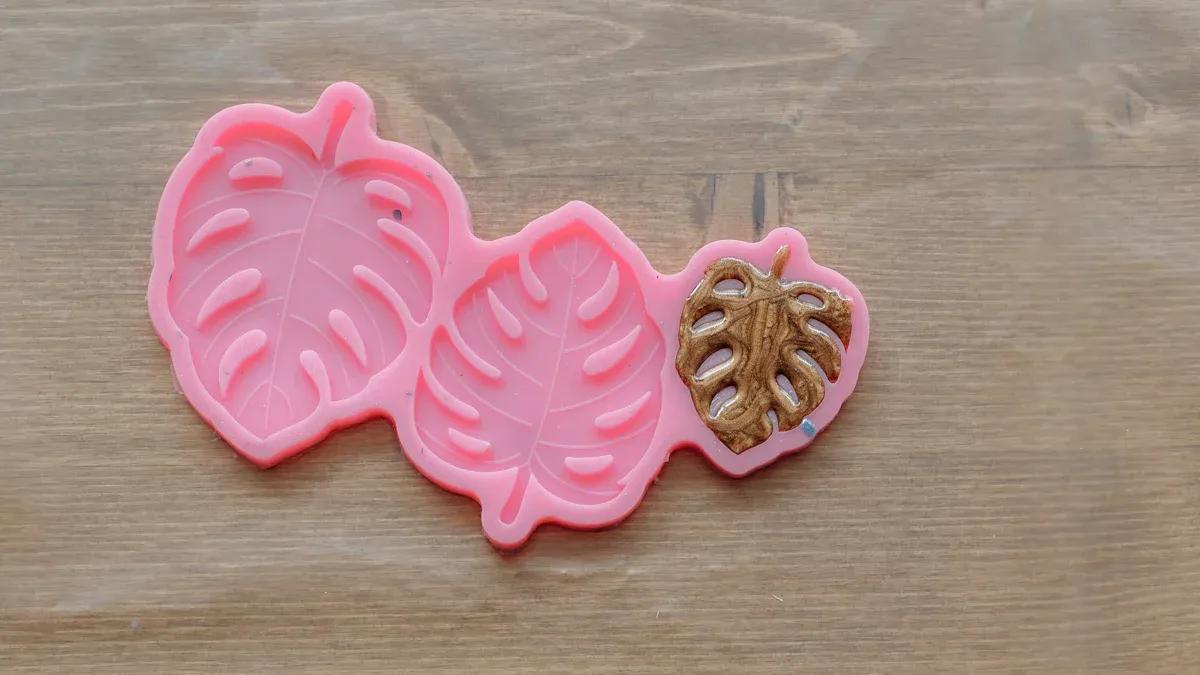
Imagine a world where medical devices fit patients perfectly, enhancing comfort and saving lives. Custom silicone molds make this possible by enabling the production of medical-grade rubber products tailored to individual needs. These molds play a vital role in creating advanced prosthetics, which accounted for 37% of the medical-grade silicone market share in 2024. Their biocompatibility and ability to mimic human tissue ensure safe, effective solutions for patients. By improving prosthetic design, these molds significantly boost mobility and quality of life, demonstrating their life-saving impact on healthcare.
Custom silicone molds are specialized tools designed to shape silicone into precise forms for various applications. These molds play a critical role in transforming design concepts into tangible products. The process begins with defining the product's specifications, such as shape, dimensions, and functionality. Designers then create sketches and 3D models to visualize the final product. Once the design is finalized, the molds are crafted with precision to replicate the intended vision.
Custom silicone molds ensure stability during production, allowing manufacturers to produce consistent, high-quality results.
| Step | Description |
|---|---|
| Product Design | Defines the product’s specifications, including shape, dimensions, and functionality. |
| Mold Manufacturing | Translates design specifications into physical molds that shape the silicone. |
These molds are essential for creating medical-grade rubber products that meet strict safety and performance standards.
Custom silicone molds have diverse applications in the medical field. They enable the production of high-precision components for diagnostic equipment, such as microfluidic devices. They also play a vital role in manufacturing implants like pacemaker enclosures, breast implants, and joint replacements.
Other applications include:
- Catheters and tubing, which require flexibility and kink resistance for fluid and air transfer.
- Seals and gaskets, ensuring sterility and leak-proof performance in medical devices.
- Wearable devices, providing skin-safe components for monitoring or therapeutic purposes.
Medical-grade silicone, shaped by these molds, offers exceptional biocompatibility, durability, and flexibility. It supports complex designs while meeting the rigorous demands of the healthcare industry.
For example, custom silicone molds comply with FDA 21 CFR §177.2600 standards and ISO 10993-5 biocompatibility requirements. These standards ensure safety and reliability for medical applications.
| Example | Description |
|---|---|
| FDA Compliance | Meets FDA 21 CFR §177.2600 standards, ensuring safety for medical use. |
| Total Extractables | Contains <50 ppm total extractables, suitable for reusable surgical tools. |
| Biocompatibility | Complies with ISO 10993-5 requirements for prosthetics and surgical tools. |
Custom silicone molds are indispensable in creating life-saving medical devices, combining precision, safety, and innovation.

Custom silicone molds offer unmatched precision and customization, making them indispensable in healthcare. You can rely on these molds to create medical devices that meet exact specifications. Their ability to replicate intricate details ensures that even the most complex designs are accurately produced. This level of precision is crucial for devices like surgical instruments and implants, where even minor deviations can impact performance.
Silicone's low viscosity plays a key role in achieving this accuracy. It allows for high-precision molding, ensuring detailed replication of designs. Additionally, silicone's properties can be tailored to meet specific medical needs, enhancing its versatility. For example, you can modify silicone to achieve the desired flexibility, hardness, or biocompatibility, depending on the application.
| Benefit | Description |
|---|---|
| Accurate Molding | The low viscosity of medical silicone allows for high-precision molding, ensuring detailed replication. |
| Customizable Properties | Silicone can be modified to meet specific medical requirements, enhancing customization. |
| Consistent Results | Ensures uniform quality and precision across batches, crucial for regulatory compliance. |
| Enhanced Detail Reproduction | Captures fine details, essential for the accuracy of medical devices like surgical instruments. |
By using custom silicone molds, you ensure consistent results across production batches. This consistency is vital for meeting regulatory standards and maintaining the reliability of medical devices.
Durability is another significant advantage of custom silicone molds. Medical-grade silicone can withstand extreme temperatures, ranging from -60℃ to 250℃, without losing its properties. This makes it suitable for various medical applications, including those requiring sterilization. You can sterilize silicone products using methods like autoclaving, ensuring they remain safe and effective for repeated use.
Custom silicone molds also comply with stringent medical standards, ensuring patient safety. Manufacturers conduct extensive testing to confirm silicone's compatibility with blood, tissue, and fluids. This testing guarantees that the material is bio-inert and does not cause allergic reactions when in contact with human tissues.
| Evidence Type | Description |
|---|---|
| Manufacturing Process | MedTech Innovations has a robust quality management system ensuring compliance with regulations. |
| Material Compatibility Testing | Extensive testing is conducted to ensure silicone's compatibility with blood, tissue, and fluids. |
| Regulatory Standards | Compliance with FDA and ISO standards is essential for medical device manufacturers. |
| Biocompatibility | Medical silicone is bio-inert and does not cause allergic reactions when in contact with human tissues. |
| High Temperature Stability | Silicone products can withstand temperatures from -60℃ to 250℃, ensuring durability in various conditions. |
When you choose custom silicone molds, you invest in products that meet the highest standards of safety and reliability.
Custom silicone molds also offer a cost-effective solution for medical device manufacturing. By optimizing the production process, these molds help you save time and resources. For instance, silicone molds enable manufacturers to produce high-quality devices in large quantities without compromising on precision. This efficiency reduces production costs while maintaining the quality required in the medical industry.
Studies highlight the cost-effectiveness of silicone molds in specific applications. For example, hand-made silicone molds provide an affordable alternative for producing articulating spacers. These spacers improve patient outcomes by facilitating early motion and enhancing quality of life. When commercial options are unavailable or too expensive, custom silicone molds offer a practical and economical solution.
By using custom silicone molds, you not only reduce production costs but also ensure that patients receive high-quality medical devices. This balance of affordability and quality makes silicone molds a valuable asset in healthcare.
Creating custom silicone molds begins with a detailed design and prototyping phase. You start by gathering requirements through consultations to understand the specific needs of the medical device. Designers then use CAD software to create 3D models, ensuring every detail aligns with the intended application.
Prototyping plays a crucial role in this process. It allows you to test the design and functionality of the mold before full-scale production. Iterative improvements based on testing feedback ensure the final product meets healthcare standards. For example:
1. Develop prototypes to assess design accuracy.
2. Test functionality to identify potential issues.
3. Refine the design based on testing results.
Prototyping accelerates development and improves product quality, ensuring the molds are ready for mass production.
Choosing the right material is essential for creating effective custom silicone molds. Medical-grade silicone is the preferred choice due to its biocompatibility and durability. You must ensure the material meets strict regulatory standards like FDA approval and USP Class VI certification.
| Property | Description |
|---|---|
| Biocompatibility | Non-toxic and hypoallergenic, ideal for medical applications. |
| FDA Approval | Confirms safety for medical use through rigorous testing. |
| USP Class VI Certification | Guarantees the material is free from harmful chemicals. |
| Quality Control | Ensures consistent performance through batch testing. |
Material selection also involves assessing compatibility with environmental factors like temperature and fluids. Silicone’s ability to maintain its properties during processing makes it a reliable choice for healthcare applications.
Quality assurance ensures the safety and effectiveness of custom silicone molds. You implement rigorous testing protocols throughout production to maintain high standards. For example:
1. Calibrate equipment regularly to ensure accuracy.
2. Monitor process deviations using sensors to detect anomalies.
3. Conduct visual inspections to identify surface flaws or inconsistencies.
4. Perform dimensional measurements to confirm strict tolerances.
5. Test mechanical properties like tensile strength and elongation.
Biocompatibility tests are crucial for molds used in medical devices. These tests verify that the silicone is safe for contact with human tissues. Continuous audits and inspections help improve quality control processes, ensuring the final product meets healthcare requirements.

Custom silicone molds play a crucial role in creating life-saving medical devices and implants. These molds allow you to produce components with exceptional precision, ensuring they meet the unique needs of patients. For example, pacemaker enclosures and artificial heart valves rely on silicone molds to achieve the exact dimensions and biocompatibility required for safe implantation.
You can also see their impact in prosthetics. Silicone molds help create prosthetic limbs that mimic the texture and flexibility of human skin. This improves comfort and functionality for users. Additionally, silicone molds are essential for manufacturing breast implants and joint replacements. These products must meet strict safety standards while providing durability and comfort.
Custom silicone molds ensure that medical implants are not only functional but also safe and reliable for long-term use.
| Application | Benefit |
|---|---|
| Pacemaker Enclosures | Precise dimensions for safe and effective implantation. |
| Prosthetic Limbs | Enhanced comfort and functionality through skin-like silicone molds. |
| Joint Replacements | Durable and biocompatible solutions for improved mobility. |
Custom silicone molds have revolutionized the production of surgical tools and equipment. You can now create tools with intricate designs and superior performance. For instance, silicone molds combined with 3D printing have been used in craniofacial reconstruction. This approach allows surgeons to plan and execute procedures with unmatched precision.
Another innovation involves patient-specific PMMA implants. By using in-house 3D printing and silicone molds, clinics can produce these implants at a lower cost. This makes advanced surgical solutions accessible to facilities with limited resources.
With custom silicone molds, you can enhance the quality and affordability of surgical tools, ultimately improving patient outcomes.
One of the most remarkable applications of custom silicone molds is their ability to create patient-specific solutions. These molds allow you to design medical devices tailored to an individual’s anatomy. This level of customization improves both comfort and effectiveness.
For example, hearing aids and dental aligners rely on silicone molds to fit perfectly. This ensures that the devices function as intended without causing discomfort. Similarly, silicone molds are used to create custom orthotics and prosthetics. These products adapt to the unique needs of each patient, enhancing mobility and quality of life.
| Patient-Specific Device | Advantage |
|---|---|
| Hearing Aids | Perfect fit for improved sound quality and comfort. |
| Dental Aligners | Customized design for effective teeth alignment. |
| Orthotics and Prosthetics | Tailored solutions for enhanced mobility and reduced discomfort. |
By using custom silicone molds, you can provide personalized care that meets the highest standards of comfort and functionality.
Custom silicone molds have revolutionized healthcare by enabling the creation of safe, effective medical devices. Their biocompatibility and ability to endure sterilization processes ensure reliability in critical applications. Recent advancements in molding techniques and material science have led to custom-fitted prosthetics that enhance patient comfort and mobility. These innovations highlight the ongoing potential of silicone molds to improve patient outcomes. By embracing continuous improvements in manufacturing, you can contribute to a future where medical solutions are safer, more precise, and tailored to individual needs.
Custom silicone molds stand out because they allow you to create medical devices tailored to specific needs. Their precision ensures accurate designs, while their biocompatibility guarantees safety. These molds also comply with strict medical standards, making them reliable for critical applications.
These molds enable the production of devices that fit perfectly and function effectively. For example, prosthetics made with silicone molds mimic human tissue, enhancing comfort and mobility. This customization improves the quality of life for patients and ensures better healthcare results.
Yes, they optimize production by reducing waste and ensuring consistent quality. You can produce high volumes of medical devices without compromising precision. This efficiency lowers costs, making advanced healthcare solutions more accessible.
Yes, many silicone molds are durable and reusable. You can sterilize them using methods like autoclaving, ensuring they remain safe for repeated use. This reusability makes them a sustainable option for medical manufacturing.
You’ll find these molds in a variety of applications, including:
- Prosthetics: Mimicking skin texture and flexibility.
- Implants: Ensuring biocompatibility and durability.
- Surgical tools: Providing precision for complex procedures.
Custom silicone molds are essential for creating life-saving devices tailored to individual needs.